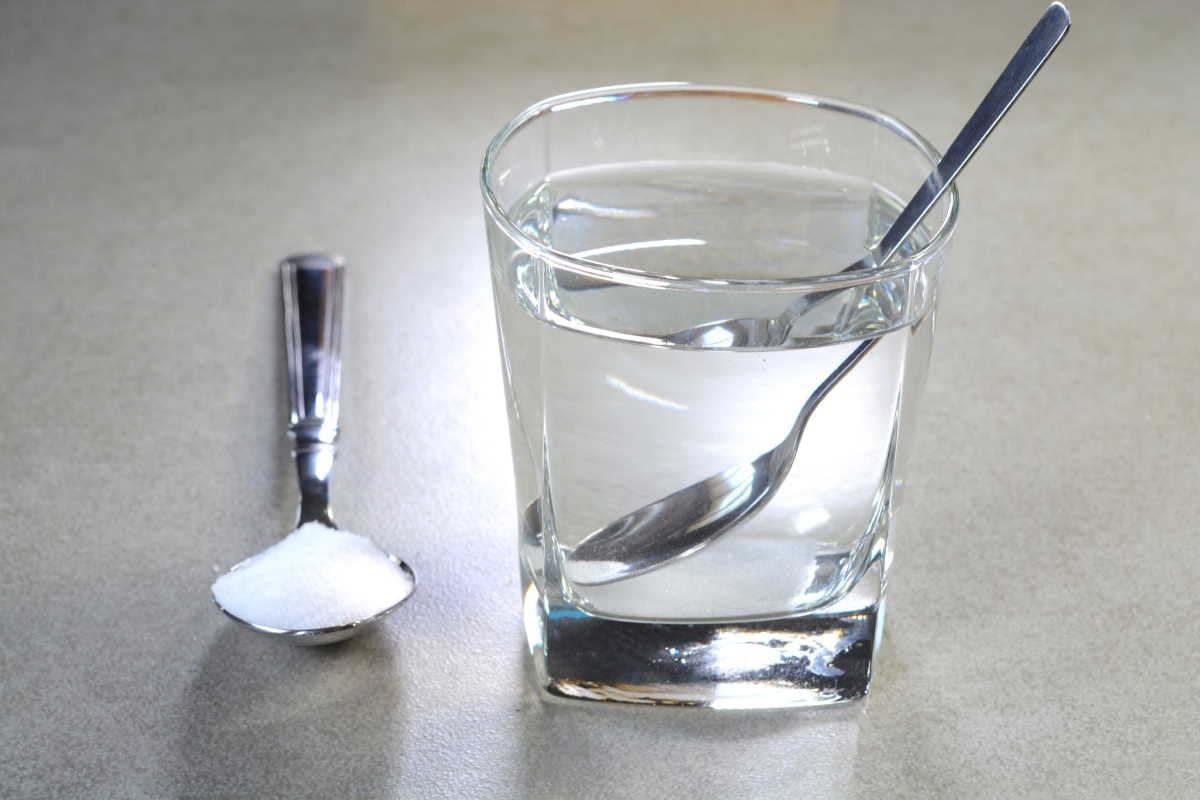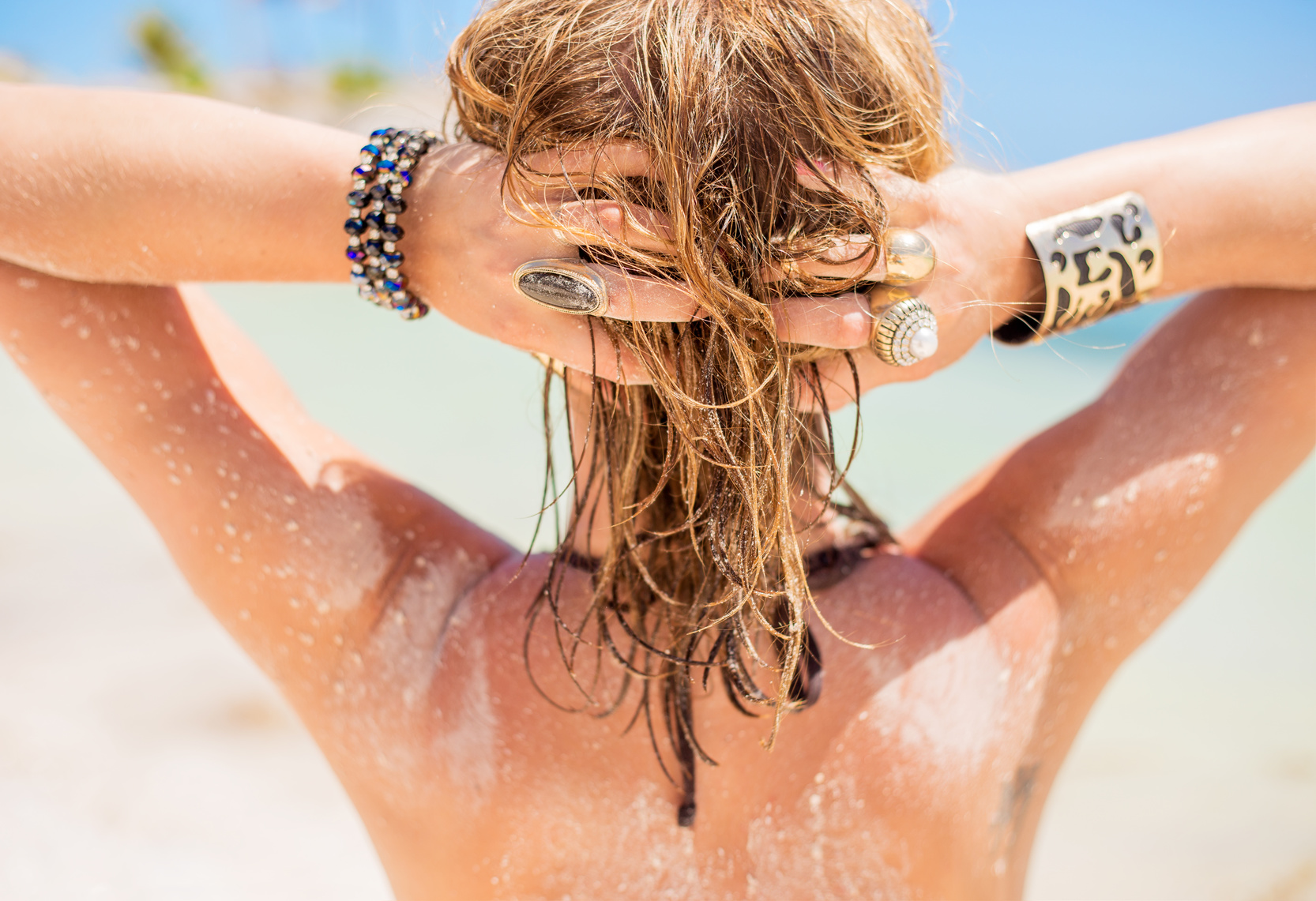When was the last time you were to the beach? Did you take a dip in the sea/ocean? Did you love it? Here is a question. Did you for a second thought about the effects of seawater on your hair? Have you asked is salt water good for your hair?
Well, we have some good news and some bad news. Let’s start by asking you the following question. Do you remember the way your hair looked and felt after you left the beach?
Some women experience classic beach waves. Others, experience a bit of heaviness and dryness. Salt water is loaded with vitamins, minerals, and amino acids. Those have a therapeutic effect on your hair and skin.
While sea salt and seawater is naturally exfoliating, it can sometimes cause dryness. If you have oily hair or greasy scalp, sea salt will promote clarity in your scalp.
What Is Sea Water Composed Of?
To best answer is salt water good for your hair, we have to look at the ingredients. What is sea water or ocean water composed of?
Generally speaking, it is composed of water, with a small amount of salt and other substances. The amount of salt can vary from one sea and ocean to another, but it is generally between 2 and 4 percent.
Salt in seawater comes from diverse mineral deposits that are dissolved in the water through the water cycle. But besides chloride ions and sodium, there are 92 other elements presented to some extent in ocean water.

Benefits Of Salt Water
No matter if it is ocean water or sea water, water with salt has some benefits for your hair and skin. Let’s break them down.
- Salt crystals in water add extra body to your hair and soothe itchy and dry scalp
- Vitamins and minerals in salt water, including magnesium, selenium, and potassium contribute to hair health and flush out elements like mercury
- Saltwater is a great exfoliator and stimulates blood flow in the scalp. It ensures nutrients get to the hair follicle and deliver results like healthy hair
- Salt has natural anti-fungal properties that will get rid of fungus-induced dandruff in your hair by reducing moisture
- Sea water also has an antibiotic effect on the scalp and can treat conditions like eczema and psoriasis
- Sea water acts as a natural shampoo, stripping heavy oils and excess sebum from your hair. This makes your hair smoother and is especially helpful for people with greasy hair
- Sea water can help you get beach waves, a popular hairstyle that looks effortless, playful, and carefree. It does that by adding texture to your and increasing volume. The result is waves and curls that look beautiful
Who Should Benefit From Salt Water?
As you look at the benefits of saltwater for hair, you can instantly think of people who will benefit from it.
For example, if you have greasy hair and oily hair, sea water salt is amazing for you. It will reduce the excess oil in your hair, making it look shinier than before.
Sea water will absorb heavy oils from the scalp and remove any leftover hair shampoo and hair conditioner residue. It will leave your hair feeling and looking smoother and lighter.
People who have blocked pores will also benefit from some sea water. The salt crystals exfoliate the scalp and open up blocked pores. This way, they stimulate blood flow to the scalp, resulting in shiny hair and healthy hair growth.
If your hair lacks nourishment, sea water will come in handy. Rich in minerals and vitamins, the sea water will get absorbed by your skin and scalp and provide various benefits.

Cons Of Salt Water
Sometimes, ocean water can be a bit too much for you. Even if you have healthy hair, ocean water can do damage.
So, the question is does salt water damage hair? Well, besides providing various benefits, you should not overexpose your hair to the sun and sea. Overexposure can lead to dry hair, tangled hair, and hair that loses its flexibility.
Speaking of drying your hair, after swimming in salty water, the hair gets dehydrated. It is the water that makes it moisturized and elastic. But because sea water has a high salt concentration, it will strip away moisture from your hair. Do not overexpose your hair and do not swim for a whole day.
If you have dyed hair, sea water can ruin your hair. Colored hair and bleached hair should stay away from sea water. Salty water can alter the crosslinks within your hair’s structure and worsen the condition. It can fade or change your hair color.
Why Does Sea Water Cause Damage?
Well, we have to start from the beginning. Hair is permeable to water, which means too much swimming can enhance water penetration into hair. And if your hair cuticle is already damaged, repeated wetting will cause a negative impact on the hair shaft.
When you are spending too much time in the sea, your hair shafts swell with water. That gives them a protective effect. Yet, if you continue with repeated expansion and contraction, it will gradually weaken the hair. Swimming also hurts hair cuticles by friction with the water.
The Osmosis Effect
We also have to mention the osmosis effect. It is the process of moving water across a semipermeable membrane to balance the solute concentrations between two areas. This is called osmosis.
So, when your hair submerges in sea water, there is a difference in salt concentration between the water within your hair and the water surrounding it. This will cause a reaction where water moves from an area of lower salt, which is your hair, to an area of higher salt, which is the sea.
The procedure will remove moisture from the interior of your hair strand, leaving it dry and brittle. This often results in frizzy hair.

Hair Care Precautions
Now let’s talk about some precautions about sea water. We talked mostly about is salt water good for your hair. We mentioned the pros and cons. But let’s talk about some safety measures you can make to ensure your hair is healthy after swimming.
First and foremost, it is not recommended to expose your hair to ocean water if you have recently treated your hair with chemicals. This includes hair dye and bleach. Remember, treated hair has already been stripped of its nutrients. Salt water will make things worse.
Dyed hair can fade with excessive salt water exposure.
Should You Wash Your Hair After Swimming?
This is an obvious answer, yet, we still have to do it. It is important to wash your hair following swimming in the ocean.
Prolonged exposure to sea water and ocean water can lead to irreversible damage to your hair. It is essential that you rinse it after swimming as soon as possible. This is why most top-rated beaches have showers at the beach. So that you can rinse your hair instantly after swimming.
Rinsing your hair after swimming will remove sand, but also other debris, dirt, and chemical that are stuck in the hair because of the water.
You should also use hair cream with SPF to prevent damage from exposure to UV rays.
